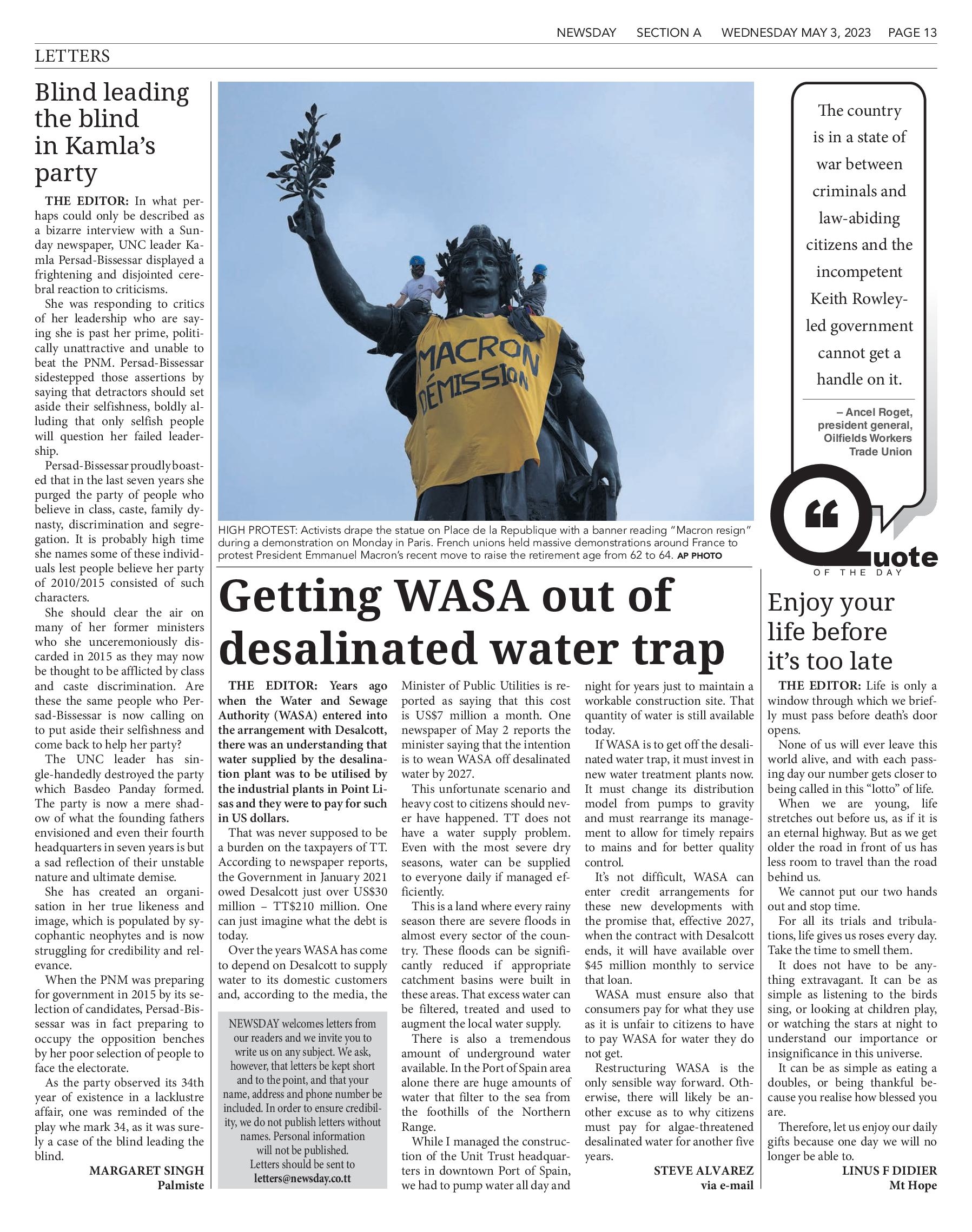Getting WASA out of desalinated water trap
THE EDITOR: Years ago when the Water and Sewage Authority (WASA) entered into the arrangement with Desalcott, there was an understanding that water supplied by the desalination plant was to be utilised by the industrial plants in Point Lisas and they were to pay for such in US dollars. That was never supposed to be a burden on the taxpayers of TT. According to newspaper reports, the Government in January 2021 owed Desalcott just over US$30 million — TT$210 million. One can just imagine what the debt is today. Over the years WASA has come to depend on Desalcott to supply water to its domestic customers and, according to the media, the Minister of Public Utilities is reported as saying that this cost is US$7 million a month. One newspaper of May 2 reports the minister saying that the intention is to wean WASA off desalinated water by 2027. This unfortunate scenario and heavy cost to citizens should never have happened. TT does not have a water supply problem. Even with the most severe dry seasons, water can be supplied to everyone daily if managed efficiently. This is a land where every rainy season there are severe floods in almost every sector of the country. These floods can be significantly reduced if appropriate catchment basins were built in these areas. That excess water can be filtered, treated and used to augment the local water supply. There is also a tremendous amount of underground water available. In the Port of Spain area alone there are huge amounts of water that filter to the sea from the foothills of the Northern Range. While I managed the construction of the Unit Trust headquarters in downtown Port of Spain, we had to pump water all day and night for years just to maintain a workable construction site. That quantity of water is still available today. If WASA is to get off the desalinated water trap, it must invest in new water treatment plants now It must change its distribution model from pumps to gravity and must rearrange its management to allow for timely repairs to mains and for better quality control It's not difficult, WASA can enter credit arrangements for these new developments with the promise that, effective 2027, when the contract with Desalcott ends, it will have available over $45 million monthly to service that loan. WASA must ensure also that consumers pay for what they use as it is unfair to citizens to have to pay WASA for water they do not get. Restructuring WASA is the only sensible way forward. Otherwise, there will likely be another excuse as to why citizens must pay for algaethreatened desalinated water for another five years. STEVE ALVAREZ via email

